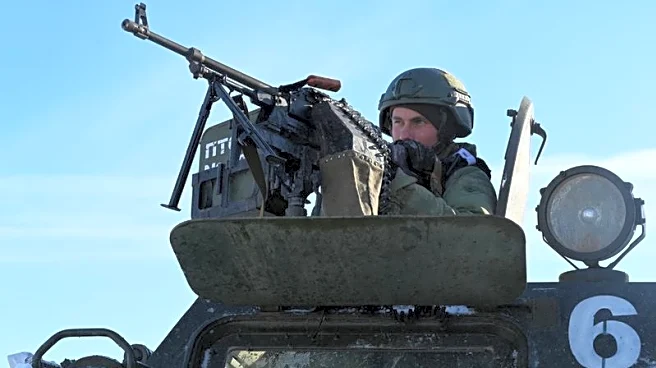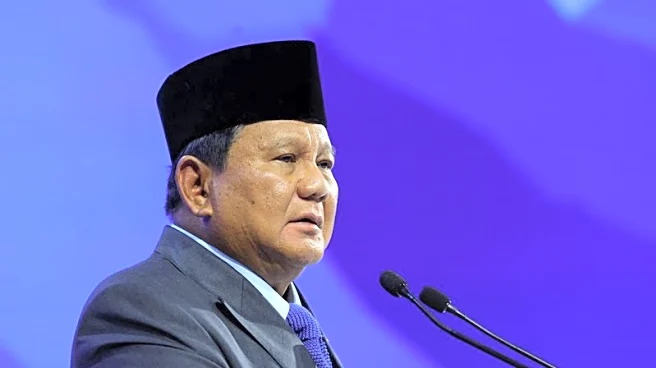What's Happening?
Kyler Murray, quarterback for the Arizona Cardinals, is under scrutiny following the team's recent losses in the NFC West. After a promising 2-0 start, the Cardinals have lost two consecutive divisional games, raising questions about Murray's performance and future with the team. In a recent game against the Seattle Seahawks, Murray threw two early interceptions, contributing to a significant deficit that the team struggled to overcome. Despite a late rally, analysts and fans are questioning whether Murray has reached 'bust' status, given his record against divisional rivals and limited playoff success. ESPN analyst Ryan Clark suggested that the Cardinals may not be the right environment for Murray to achieve significant success, sparking discussions about his potential future with the team.
Why It's Important?
Kyler Murray's situation is significant as it highlights the challenges faced by high-profile athletes in maintaining performance and meeting expectations. As a former top overall pick, Murray's career trajectory is closely watched, and his struggles could impact the Cardinals' strategic decisions moving forward. The team's performance in the NFC West is crucial for their playoff aspirations, and Murray's ability to lead effectively is a key factor. The ongoing debate about his status as a 'bust' reflects broader concerns about the Cardinals' ability to compete in a tough division. This situation may prompt the team to consider changes in their roster or coaching strategies to better support Murray or explore alternative options.
Beyond the Headlines
The criticism of Kyler Murray also touches on broader themes of athlete development and team dynamics. The pressure on Murray to perform highlights the expectations placed on top draft picks and the challenges they face in living up to their potential. The Cardinals' struggles may also reflect deeper issues within the organization, such as talent management and strategic planning. As discussions about Murray's future continue, the team may need to evaluate their long-term goals and consider how best to support their players in achieving success. This situation could lead to shifts in the team's approach to player development and performance management.









